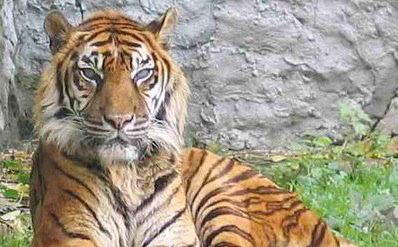In February 2010, just before the start of the lunar Year of the Tiger, the Perak Department of Wildlife and National Parks found a dead tiger with its left front paw severed and still caught in the wire snare some distance away from its body in Bukit Tapah Forest Reserve, Perak.
The tiger had been trapped for days, shot twice in the eye, attacked with poisonous darts and spears and left to die a slow, excruciating death.
Despite overwhelming evidence to facilitate a clear conviction, the four men who reportedly admitted to the crime were acquitted of killing that tiger.
WWF-Malaysia is extremely disappointed with the verdict as this is another crime against the Malayan tiger that has gone unpunished.
The verdict spells trouble for Malaysia’s fast diminishing wild tiger population.
Illegal hunting is the most devastating threat to the tiger and other endangered species.
The initial decline in tiger numbers was primarily due to large-scale loss of habitat but in more recent times, the most urgent threat is poaching for its body parts, persecution by angry villagers, and starvation as their prey is over-harvested.
Many different cultures use tiger parts for their purported medicinal qualities, including the bones, blood, sexual organs and other parts.
Despite advances made such as the Wildlife Conservation Act 2010 with its higher penalties and increased joint enforcement patrols between the Malaysian Armed Forces and the Wildlife Department and the establishment of an Environmental Court, there would be little effect if the final verdict to the admitting poachers comes to this end.
The tiger Panthera tigris is the world’s largest cat, found only in Asia.
There are six sub-species of tiger; with the Siberian Tiger being the largest weighing 300kg and the Sumatran tiger is the smallest sub-species, averaging 120kg.
The WWF-Malaysia is an environmental conservation organisation affiliated with WWF (World Wide Fund for Nature).
In Malaysia, it started in January 1972 and from focussing on wildlife conservation such as saving endangered species like the tigers and turtles, their work has extended to encompass marine and forest conservation as well; protecting our highlands and forests, and also our rivers and seas.
The mission of the WWF is to stop the degradation of the planet’s natural environment and to build a future in which humans live in harmony with nature, by:
- conserving the world’s biological diversity
- ensuring that the use of renewable natural resources is sustainable
- promoting the reduction of pollution and wasteful consumption
Photo taken from: wildanimalsnames.blogspot.com











